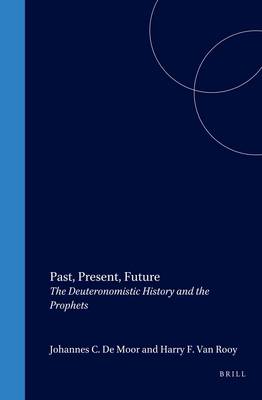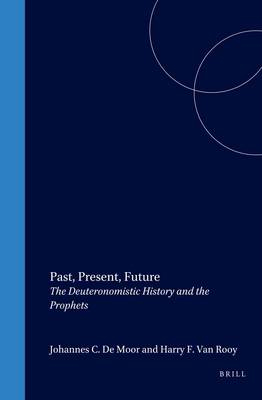
- Afhalen na 1 uur in een winkel met voorraad
- Gratis thuislevering in België vanaf € 30
- Ruim aanbod met 7 miljoen producten
- Afhalen na 1 uur in een winkel met voorraad
- Gratis thuislevering in België vanaf € 30
- Ruim aanbod met 7 miljoen producten
Zoeken
Past, Present, Future
The Deuteronomistic History and the Prophets
€ 413,95
+ 827 punten
Omschrijving
In the politico-religious history of the Deuteronomists, past, present and future mingle in an often inextricable way. Long obsolete traditions, which had been unacceptable to the Davidic dynasty, were rediscovered and adapted to the aims of the Deuteronomists. Personages of the past were
condemned and blackened in the light of the new ideology, whereas others were glorified and embellished as heroes of faith because their ideas suited the historians.
This inevitably raises the question whether the Bible can be trusted as a source book for writing a history of Israel. Apparently not, say scholars like T.L. Thompson, P.R. Davies and N.P. Lemche. In this volume a number of authors take up this challenge, stating that the radical rejection of the biblical testimony in favour of a history based mainly on archaeology is ill-advised.
Several contributions to this volume draw instructive parallels between the process of re-writing the history of South Africa and the work of the Deuteronomists.
condemned and blackened in the light of the new ideology, whereas others were glorified and embellished as heroes of faith because their ideas suited the historians.
This inevitably raises the question whether the Bible can be trusted as a source book for writing a history of Israel. Apparently not, say scholars like T.L. Thompson, P.R. Davies and N.P. Lemche. In this volume a number of authors take up this challenge, stating that the radical rejection of the biblical testimony in favour of a history based mainly on archaeology is ill-advised.
Several contributions to this volume draw instructive parallels between the process of re-writing the history of South Africa and the work of the Deuteronomists.
Specificaties
Betrokkenen
- Uitgeverij:
Inhoud
- Aantal bladzijden:
- 342
- Taal:
- Engels
- Reeks:
- Reeksnummer:
- nr. 44
Eigenschappen
- Productcode (EAN):
- 9789004118713
- Verschijningsdatum:
- 17/08/2000
- Uitvoering:
- Hardcover
- Formaat:
- Genaaid
- Afmetingen:
- 163 mm x 241 mm
- Gewicht:
- 780 g

Alleen bij Standaard Boekhandel
+ 827 punten op je klantenkaart van Standaard Boekhandel
Beoordelingen
We publiceren alleen reviews die voldoen aan de voorwaarden voor reviews. Bekijk onze voorwaarden voor reviews.










